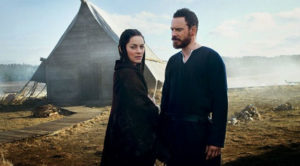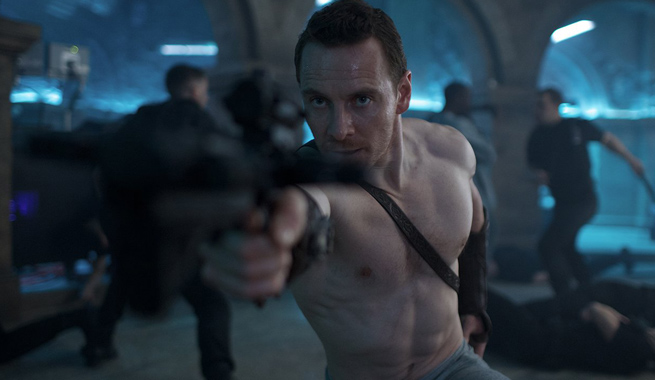I haven’t played any of the “Assassin’s Creed” video games, so I’m not sure if I would have been able to follow the Apple of Eden storyline better. But since I hadn’t played the games, I was pretty damn confused throughout.
Marion Cotillard’s psychologist character Sophia Rikkin tells us throughout that if they could acquire the Apple of Eden, they could rid the world of violence – because whoever has it controls free will. I didn’t really get the reasoning that if you have the apple, you would control free will, and it seemed like the writers assumed viewers would know that the Apple has mind-control abilities (which is fair, because most viewers will have likely played the games). I thought the explanation was murky and the story suffered from a lack of clarity.
The story also suffered from just being generally uninteresting. Callum “Cal” Lynch (Michael Fassbender) is sentenced to death by lethal injection for murder – they never elaborate much past that – and since he’s legally dead, he’s taken in by Abstergo Industries (led by Jeremy Irons, father to Marion Cotillard’s character) for an experiment. Turns out, he’s the descendant of a Knights of the Templar member, Aguilar de Nerha (also Fassbender), and is taken through his movements and memories in 1492 Spain to see what happened to the Apple of Eden.
The most compelling parts of the story are definitely the scenes during the Spanish Inquisition that writhe with style, and you know when they’re in 1492 because of a transitioning crow flying through the air. The scenes are action-oriented, and are the most exciting parts of a largely boring feature. The costumes of the time are pretty awesome, too.

Michael Fassbender is good in a dual performance. It’s an athletic one and the fact that he kept a straight face during a manic and rather hilarious (I’m unsure if the hilarity was intentional) rendition of Patsy Cline’s “Crazy” was impressive. That’s where the good of the movie starts and ends.
The character of Cal, or any other characters, aren’t interesting. Michael K. Williams made an appearance as another descendant within the Order and his characterization was slack, to say the least. His dialogue was rather cryptic. Cal’s characterization was alright – his mother was killed and it made him an angry person – but he was boring. Irons and Cotillard’s characters who were searching for the Apple were also nothing memorable, and were simply driven by the prospect of eradicating violence.
The whole screenplay just felt like the writers spent more care on the action sequences and fight choreography than crafting a competent story of any kind, with any characters you might even want to slightly root for.
I found the editing annoying when Lynch was plugged into Animus, the device that let him see his ancestor’s memories, since the scene alternated between Aguilar in 1492 back to Lynch in 2016. Perhaps it was trying to remind us that it had happened and now he was just living through the DNA memory, learning assassin skills as he went.
 Whatever Aguilar does, Lynch does in 2016 – and the edits of him in Spain actually fighting real people was more interesting than Lynch in a huge room fighting ghostly holograms. It felt unnecessary to switch back and forth so many times, just because Fassbender’s playing both people and we know they’re doing the same exact thing but in different settings.
Whatever Aguilar does, Lynch does in 2016 – and the edits of him in Spain actually fighting real people was more interesting than Lynch in a huge room fighting ghostly holograms. It felt unnecessary to switch back and forth so many times, just because Fassbender’s playing both people and we know they’re doing the same exact thing but in different settings.
Cinematography-wise, everything was either too bright or really dark (at least when seen in 3-D). Fight and chase scenes were hectic, making things harder to follow at certain points on who was killing who. The frantic editing also helped avoid showing basically any blood whatsoever, which was ridiculous at one point when there definitely should have been blood. It apparently comes in the territory of adapting an M-for-Mature rated game franchise into a tame PG-13 movie that’s not nearly gritty or interesting enough to be good.
– by Daniel Prinn


